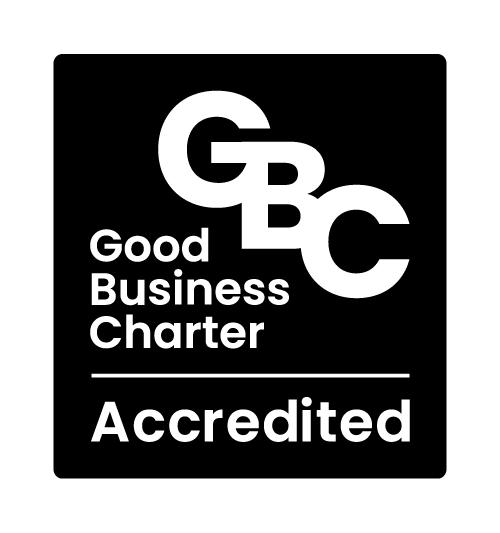Latest top 10 HR questions
Can employers carry out criminal records checks under the General Data Protection Regulation (GDPR)?
Under the General Data Protection Regulation (2016/679 EU) (GDPR), personal data relating to criminal convictions and offences can be processed only:
- under the control of official authority; or
- when it is authorised by law providing for appropriate safeguards for the rights and freedoms of data subjects.
On the face of it, this means that it would not be lawful for employers to carry out criminal records checks as a matter of course, unless they are recruiting for a role for which checks are authorised by law, for example roles involving work with vulnerable adults or children where a Disclosure and Barring Service check is required.
However, the Data Protection Act 2018, which supplements the GDPR, authorises the use of criminal records checks by organisations other than those vested with official authority (the GDPR includes a derogation to allow such legislation). The Act allows employers to process criminal convictions data where necessary for the purposes of performing or exercising employment law obligations or rights. To carry out such processing, an employer would have to have in place a policy that explains its procedures for securing compliance with the principles of the GDPR in relation to the processing of the criminal records data, and that explains its policies on erasure and retention of the data. The Act also authorises processing criminal records data in other circumstances, including where the subject has given his or her consent. This would allow employers to request a criminal records check where the prospective employee agrees to this, provided that the consent meets the specific requirements under the GDPR.
What should the employer and employee discuss at an individual redundancy consultation meeting?
The employer should meet with employees provisionally selected for redundancy for several individual consultation meetings. These will usually take place after the employer has provided the affected employees with general information, such as the reason for the proposed redundancies, and information about the selection process, either as part of the formal collective consultation, or in group meetings with the affected employees if no formal collective consultation is required.
At the individual meetings, the employer should ask the employee for any suggestions that he or she may have to avoid redundancies. It is important that the employer does not prejudge the outcome of consultation meetings; it should give serious consideration to any suggestions that the employee makes.
The employer should give the employee the opportunity to raise any objections to the basis for his or her provisional selection, for example by discussing the application of the selection criteria. It should discuss whether or not there is any suitable alternative employment for the employee, and explain what support is on offer if redundancy is confirmed, such as a reasonable amount of paid time off to look for new employment. The employer should explain the composition of any redundancy package and how the notice period will operate.
There is no set number of meetings that must be held during the individual consultation process, but it is likely that at least two meetings will be necessary to give the employee the opportunity to consider and respond to the information discussed. It may be necessary for the employer to hold further meetings, before redundancy is confirmed, to discuss any issues outstanding from the previous meetings.
Can an employer ask a prospective employee to fill in a medical questionnaire?
An employer can ask a prospective employee to complete a medical questionnaire, but only after it has made him or her a job offer and only if it complies with data protection requirements. Section 60(1) of the Equality Act 2010 prohibits employers from asking job applicants questions about their health before offering them employment (with some exceptions).
If an employer intends to ask prospective employees to complete a medical questionnaire after making them an offer of employment, it must ensure that it has a legal basis to do so under the General Data Protection Regulation (2016/679 EU) (GDPR), as this will amount to processing their personal data. The employer would have a legal basis if processing is necessary to establish an employee's fitness to do the particular work, to comply with health and safety obligations.
Information about an individual's health falls into the special categories of personal data under the GDPR. An employer can process special category data where this is necessary for the purposes of performing or exercising employment law obligations or rights, such as in relation to health and safety. The employer must have in place a policy document that explains how it will comply with the principles of the GDPR in relation to the special category personal data and that sets out its policies on retention and erasure of the data.
How should employers deal with employees who spend work time following sporting events on the internet?
Different employers take differing approaches to internet usage that is not work related. Some employers prohibit personal use of their internet facilities, while others allow employees to access the internet at work for personal use provided that usage is reasonable and/or during breaks. It is advisable for employers to adopt an internet policy that makes clear their approach in relation to employees' personal use of the internet, and to specify what is permitted in terms of time spent and the types of site that may be visited. In the run-up to major sporting events, such as the World Cup or Olympic Games, it may be worthwhile for employers to remind employees of their rules in relation to internet use and that those rules apply to the following of the particular event. Employers should also consider setting out their approach to the use of personal mobile devices to watch matches during working hours.
Where an employee breaches his or her employer's rules by accessing the internet to follow sporting events where personal use is not permitted, or where he or she spends an excessive amount of work time following the events, the employer should address the matter as soon as it comes to light. If the offence is minor (for example a one-off, minor breach of the internet policy) it may be sufficient for the employer to raise the matter informally with the employee. However, employers should deal with serious or persistent offenders under their disciplinary procedure.
Employers should treat any form of excessive internet use at work, whether it is reading sports coverage, researching holiday destinations or visiting shopping sites, in a consistent way, to help to avoid allegations of unfair or discriminatory treatment.
Is there a maximum workplace temperature beyond which employees cannot be expected to work?
The Workplace (Health, Safety and Welfare) Regulations 1992 (SI 1992/3004) state that, during working hours, the temperature in all workplaces inside buildings should be reasonable. However, the Regulations do not provide a maximum workplace temperature.
The Health and Safety Executive previously defined an acceptable zone of thermal comfort for most people in the UK as lying "roughly between 13°C (56°F) and 30°C (86°F), with acceptable temperatures for more strenuous work activities concentrated towards the bottom end of the range, and for more sedentary activities towards the higher end". What is reasonable will depend on the nature of the workplace and the activities undertaken.
Should regular overtime be taken into account when calculating weekly earnings for redundancy pay purposes?
Statutory redundancy pay is calculated using a formula that includes the employee's gross weekly pay, subject to a maximum. A week's pay is calculated based on the employee's "normal working hours" in a week or the average working hours in a 12-week period if his or her hours vary. Overtime is included in "normal working hours" only if the employee is entitled to overtime under the contract of employment, ie if the employer must provide overtime and the employee must work it. In that situation, the overtime pay will count towards a week's pay for the purposes of calculating statutory redundancy pay.
Can an employer reject an employee's choice of companion for a disciplinary or grievance hearing?
Under s.10 of the Employment Relations Act 1999, employees have the right to be accompanied at a disciplinary or grievance hearing if they make a reasonable request.
The employer must allow the employee to be accompanied by a companion who is chosen by the employee from three categories, set out in s.10(3) of the Act. These categories are: a trade union official employed by the union; a trade union official who is certified in writing by the union as having the necessary experience or training to act as a companion; or another of the employer's workers.
In Toal and another v GB Oils Ltd EAT/0569/13, the Employment Appeal Tribunal (EAT) held that there is no requirement for an employee's choice of a particular companion to be reasonable, provided that the companion is within one of the categories set out in s.10(3). The Acas code of practice on disciplinary and grievance procedures was amended in March 2015 as a result of this case, as the previous version suggested that a request could be unreasonable due to the employee's choice of companion, for example the choice of a companion from a remote geographical location if someone suitable was available on site. The EAT in Toal found the wording of s.10 to be clear. Section 10 states only that the request to be accompanied must be reasonable, not that the choice of companion must be reasonable.
Therefore, an employer should not reject an employee's choice of companion if he or she falls within one of the categories in s.10(3).
What is an "automatic unfair dismissal"?
If an employee is dismissed for certain reasons, set out in legislation, the dismissal will be automatically unfair.
The automatically unfair reasons for dismissal include:
- family-related reasons, such as pregnancy, maternity leave, adoption leave or shared parental leave;
- refusing to give up a right under the Working Time Regulations 1998 (SI 1998/1833), for example the right to a rest period;
- whistleblowing;
- taking action to enforce the right to be paid the national minimum wage;
- trade union membership or activities; and
- a TUPE transfer (where the reason is not an economic, technical or organisational reason entailing changes in the workforce).
If an employee brings an employment tribunal claim, and establishes that the dismissal was for one of the automatically unfair reasons, the employer will not be able to defend the claim. Employees do not require the usual minimum two years' service to be able to bring a claim for most of the automatically unfair reasons for dismissal (the exception is where the employee is dismissed because of a TUPE transfer).
For a full list of the automatically unfair reasons for dismissal, see Quick reference > Automatically unfair reasons for dismissal.
What rights of access do employees have to job references?
Generally, employees have the right under the General Data Protection Regulation (2016/679 EU) (GDPR) to access information that organisations hold about them. However, there is an exemption under sch.2 to the Data Protection Act 2018 (which supplements the GDPR) that allows employers to refuse to disclose a confidential employment reference to an employee or former employee if he or she requests access to it.
Under the previous data protection regime, the equivalent exemption relating to confidential references under the Data Protection Act 1998 applied only where the employee made the request to the employer that provided the reference. The employee could therefore access the reference by making a request to the employer that received the reference instead. This anomaly is removed by the Data Protection Act 2018.
An employer that is covered by the exemption and does not therefore have to provide access to the reference can choose to do so anyway. It should be careful not to disclose information about a third party, for example the person who wrote the reference, unless that person has consented to the disclosure or it is reasonable to disclose the reference without his or her consent. Where the third party does not consent, the employer could choose to disclose as much of the reference as possible without revealing the identity of the author, by the omission of the author's name and other identifying particulars.
When does a casual worker become an employee?
There is no simple answer to this question; the employment status of casual workers depends on the nature of the relationship between the worker and the employer. If an employer engages people on an ad hoc basis to help out during staff shortages or at busy times of the year, or when an emergency arises, accepting that they may or may not be available when it needs them, they are unlikely to be employees. But, if it regularises the arrangement with those workers and undertakes to provide them with work on specified days and at specified times of the week, on the understanding (accepted by them) that they will present themselves for work on those days and at those times, the chances are that the relationship between the employer and the workers will change to that of employer and employees. In the final analysis, it will be for the tribunals and courts to determine the true nature of the contractual relationship, based on the facts of each case.
https://www.xperthr.co.uk/faq/when-does-a-casual-worker-become-an-employee/24399/?cmpid=ILC|PROF|HRPIO-2013-110 XHR_free_content_links|ptod_article&sfid=701w0000000uNMa


